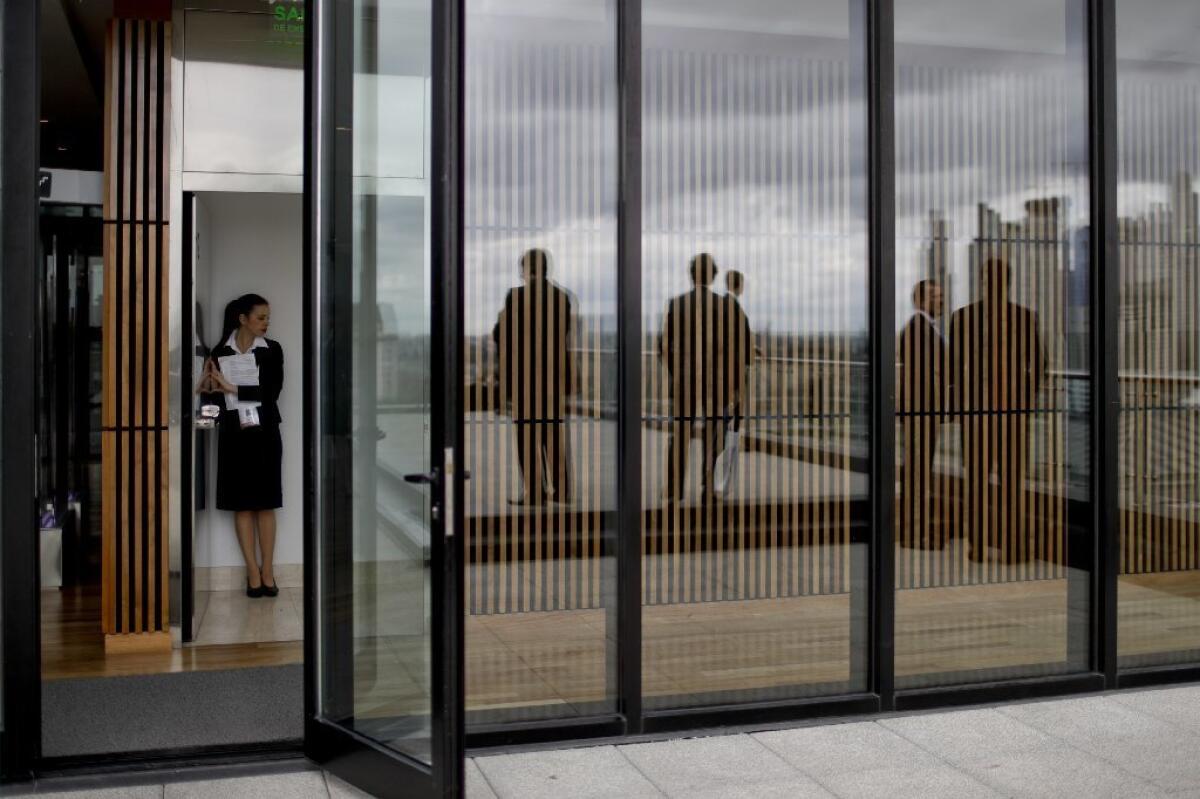For those in posh jobs, depression may be harder to treat

There are certainly many perks that come with a job at the top of the corporate ladder, but this is not one of them: When people with prestigious jobs fall into depression, they are less likely to benefit from treatment than their coworkers several rungs below them.
In a study of 654 employed patients who sought help for depression, researchers found that those in occupations with high wages and status showed a poorer response to treatment and higher rates of treatment-resistant depression.
After study subjects got at least two different treatments for depression, 55.9% in those in the highest occupational group failed to see their depression lift. In contrast, only 40.2% of the middle-level workers and 44.3% of those toiling in low-level jobs remained treatment-resistant.
The researchers, who presented their findings Wednesday at the European College of Psychoneuropharmacology Congress, counted psychotherapy and a course of antidepressant medication as a treatment. They defined “treatment resistance” as a failure to respond to at least two antidepressant regimens — a change of antidepressants; the addition of psychotherapy to an antidepressant or an antidepressant to psychotherapy; or a shift from one to the other.
By the study’s end, only around one in six in the higher-status group had achieved remission from an episode of depression. Among those employed in the middle-level and low-level occupations, one in four did so.
The depressed subjects hailed from Austria, Belgium, Israel and Italy. Those who worked in posh jobs were younger, more educated and more likely to get psychotherapy in addition to antidepressants than were those in lower-status jobs. That combination of treatments is considered the standard of care in treatment of major depressive disorder. But in the United States, especially, psychotherapy is often omitted because it can be hard to access and is time-consuming, expensive and has been poorly reimbursed by insurers.
From 2009 to 2012, the most recent period for which statistics are available, 7.6% of Americans older than 12 were thought to suffer from moderate to severe depression. A 2010 study found that about half of Americans with major depressive disorder did not get any treatment for the condition. That research also found evidence that depressed African Americans and Mexican Americans are more inclined to accept psychotherapy than are non-Latino whites, and that they were less likely than whites to get antidepressant medication.
The authors of the latest research, which is considered preliminary because it has not been published, acknowledged that existing research has consistently shown that people with low incomes and educational levels are more likely to develop depression than people who are affluent and well-educated. Their findings suggest that in recommending depression treatments, doctors and mental health workers should take a patient’s work into account as well, they added.
“The results of this study might sound counterintuitive,” said Dr. Eduard Vieta, who chairs of the University of Barcelona’s Department of Psychiatry and Psychology. “But people with highly demanding jobs are subject to a lot of stress, and when they break down with depression, it may be particularly difficult to cope” with demands they were previously managing to satisfy.
Alternatively, said Vieta, patients in high-status jobs may be less likely to accept antidepressant medications as an adjunct to psychotherapy. Since that combination is generally thought most effective in sending depression into remission, he said, those smart, hard-charging people may be denying themselves the fastest route to remission.
Follow me on Twitter @LATMelissaHealy and “like” Los Angeles Times Science & Health on Facebook.
MORE IN SCIENCE
Chill out, ladies. Stress can erase the benefits of your healthful diet
Men with anxiety are more vulnerable to cancer, study says




